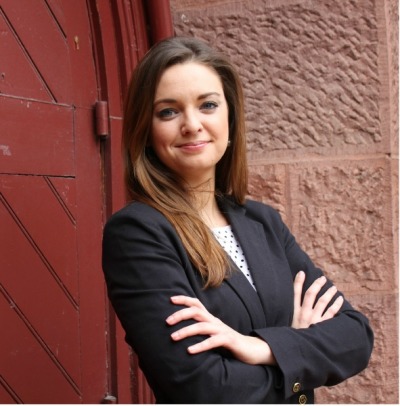Millennial Female Discovers Natural Family Planning's Surprise Comeback

In preparation for my upcoming marriage, I have set out researching deeper into Fertility Awareness Methods (FAM) or more commonly called Natural Family Planning (NFP), a birth control method based on the natural observation of signs and symptoms of a woman's ovulation cycle. No chemicals. No treatments. No devices. I'll be honest; NFP is a complex method that takes discipline and commitment. But what NFP does offer is an alternative method to the negative ethical, physical and emotional effects that lurk behind the convenience of the Pill.
I've shared my own thoughts on the need for Evangelicals to stop considering NFP as solely "Catholic" in an op-ed entitled "Why Aren't Evangelicals Talking About Natural Family Planning?" Why Evangelicals haven't collectively considered NFP as a viable alternative chemical contraception, I'll never know. So I was especially surprised to read CNN's report covering NFP's recent rise in popularity among secular women.
In the CNN article entitled, "For Birth Control, What's Old is New Again," author Nadia Kounang notes the "growing movement of young women who are saying no to hormonal birth control and yes to a kind of birth control that sounds at first like a real throwback with a little extra high-tech twist."
Secular women are recognizing the serious health risks associated with chemical contraception that have gone ignored for far too long. "I'm a health person," said 25 year-old Aisha Mukooza to CNN. "I try to eat healthy food, so the idea of being pumped with synthetic hormones didn't appeal to me, in fact, it was scary."
Chrissy Wing, writing for Ethika Politika, also shone a light on the paradox of women's trendy healthy lifestyles and the Pill. Wing humorously wrote, "Eat the meat of a cow that has consumed synthetic hormones? No! Take them yourself via a highly concentrated white pill? Yes, please, but I can only wash them down with organic juice. Chemical free."
The overall number of women using NFP remains small, CNN reported that a University of Iowa study found that if more women knew about NFP, then 1 in 5 women would seriously consider the method as an option to the Pill.
The article goes on to address women's concerns regarding NFP's ineffectiveness. But with new technologies (yes, there is even an app for that!), tracking ovulation is getting easier and more precise. A helpful 2007 German study tracking 900 women using NFP over a 20-year period even showed a 98 percent effective rate, reported CNN.
Another sentiment shared by the women using NFP who spoke with CNN was that they felt a lack of support from their community. I and the few other women who opt for NFP to the Pill, have found this to be true in our Evangelical circles.
Some of today's Evangelical feminist, or sometimes called Jesus Feminists, go so far as to tell us that chemical contraception is the way to go, but they champion tax-payer funded chemical contraception despite infringements upon conscience rights for employers and faith-based organizations.
Sadly, an authenticity about contraception is generally lost among the Evangelical feminists in our circles. Rarely to these outspoken leaders on women's issues say, "Hey, because women are people too, I believe you ladies deserve to know that to according to the National Cancer Institute, oral contraception increases women's risk for ovarian cancer, breast cancer, cervical cancer, and liver cancer."
This year the annual March for Life theme is "Every life is a gift." For Evangelicals, our hearts agree that this message is true, but our flesh acts counter to it. Our society tells us that children are expensive, troublesome, and diminish our own goals and dreams rather than add to them. We ignore the warning signs in the pursuit of independence, cleared acne, and lighter menstruation symptoms.
Of course, we would disagree with the sentiments (in public at least) that unexpected life is a gift. But just as the secular organic vegan ironically struggle to let go of their chemical contraception habits, so too do Evangelical couples wrestle with our own ironic, perhaps even a bit hypocritical, birth control additions. (It is important to note here that NFP can also be used with an immoral, selfish attitude. But for this discussion, NFP's use for spacing and health precautions, as an alternative to chemical contraception is the focal point.)
NFP certainly isn't a quick fix to the moral, ethical, and health dilemmas that come with the Pill. But with its comeback in secular society, perhaps Evangelical women and their men will finally start talking about the benefits of Natural Family Planning.






















